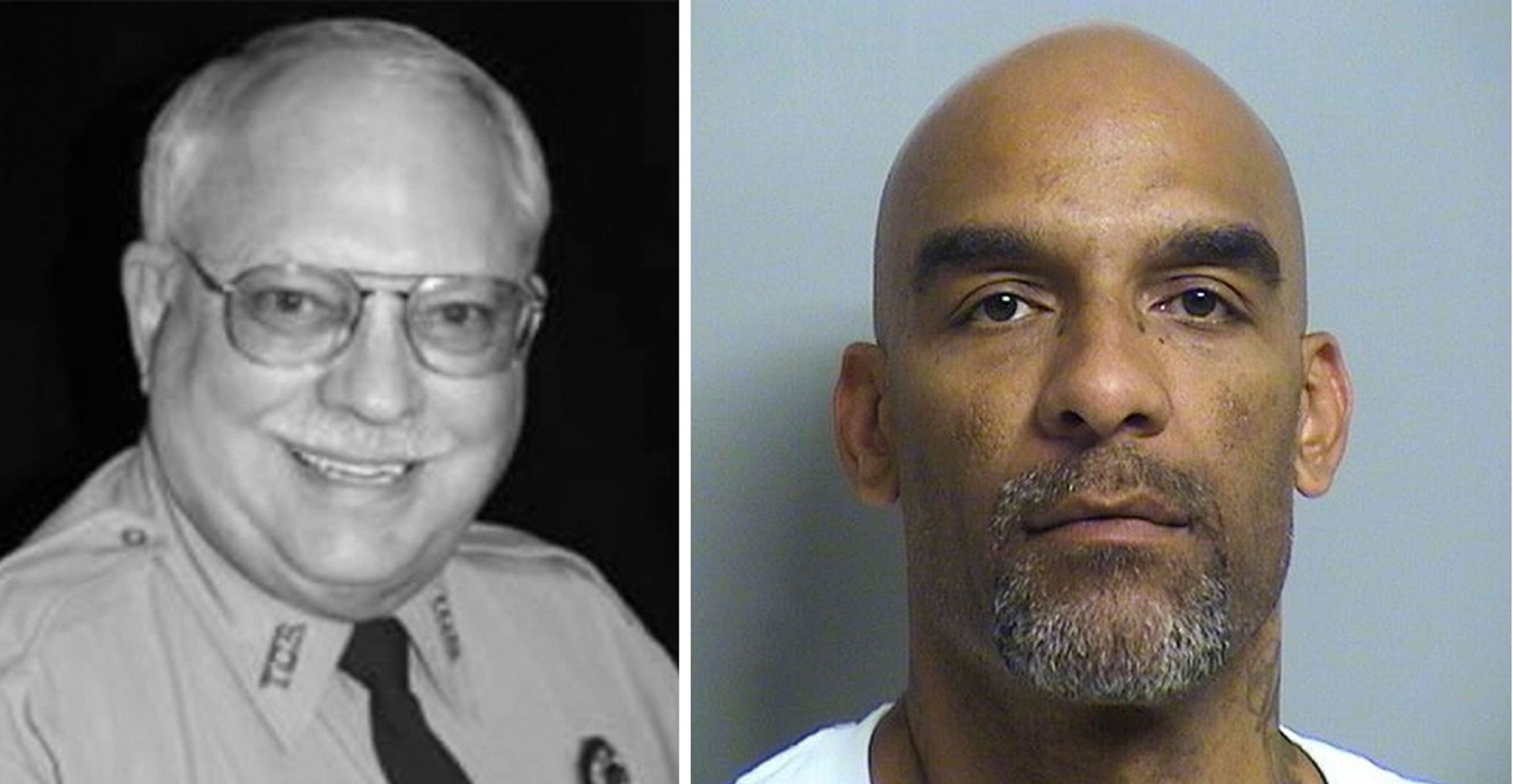Volunteer police officers in the US overwhelmingly allowed to use guns
An armed volunteer officer killed a man last week after mistaking his gun for his Taser

Your support helps us to tell the story
This election is still a dead heat, according to most polls. In a fight with such wafer-thin margins, we need reporters on the ground talking to the people Trump and Harris are courting. Your support allows us to keep sending journalists to the story.
The Independent is trusted by 27 million Americans from across the entire political spectrum every month. Unlike many other quality news outlets, we choose not to lock you out of our reporting and analysis with paywalls. But quality journalism must still be paid for.
Help us keep bring these critical stories to light. Your support makes all the difference.
Robert Bates was booked Tuesday in Tulsa, Oklahoma and released on bond after he was charged with manslaughter in the death of Eric Harris, in which Mr Bates says he accidentally shot the man after mistaking his gun for his Taser.
Mr Bates and the Tulsa police force have been under fire because of the former’s standing as a reserve deputy, a volunteer who was on the force because of gifts given to the police department.
Many, including the American Civil Liberties Union, have said that Mr Bates never should have been in the position the shoot Mr Harris. But a recent study found that the vast majority of volunteer police officers are allowed to carry guns and make arrests.
According to a paper written by Ross Wolf, associate dean at the University of Central Florida and a member of the National Sheriff’s Association Reserve Law Enforcement Committee, 91 per cent of volunteer or part-time deputies have the authority to be armed.
About 78 per cent of volunteer or part-time deputies are authorized to make arrests and 45 per cent can make arrests whether or not they are on-duty, according to the research.
These statistics were compiled in a survey sent to the 3,080 US sheriffs who are members of the National Sheriff’s Association, to which 1,710 usable responses were received.
The volunteer deputies spent about 9.6 hours per week on duty and took part in foot patrol, emergency response, security and other law-enforcement operations, the data shows. In the case of Mr Bates, the volunteer deputy was involved in an undercover sting operation.
The research shows that nearly half – 43 per cent – of all sheriffs said that while the volunteers did receive similar training to full-time officers, they spent less time in training.
Follow @PaytonGuion on Twitter.
Subscribe to Independent Premium to bookmark this article
Want to bookmark your favourite articles and stories to read or reference later? Start your Independent Premium subscription today.
Join our commenting forum
Join thought-provoking conversations, follow other Independent readers and see their replies
Comments